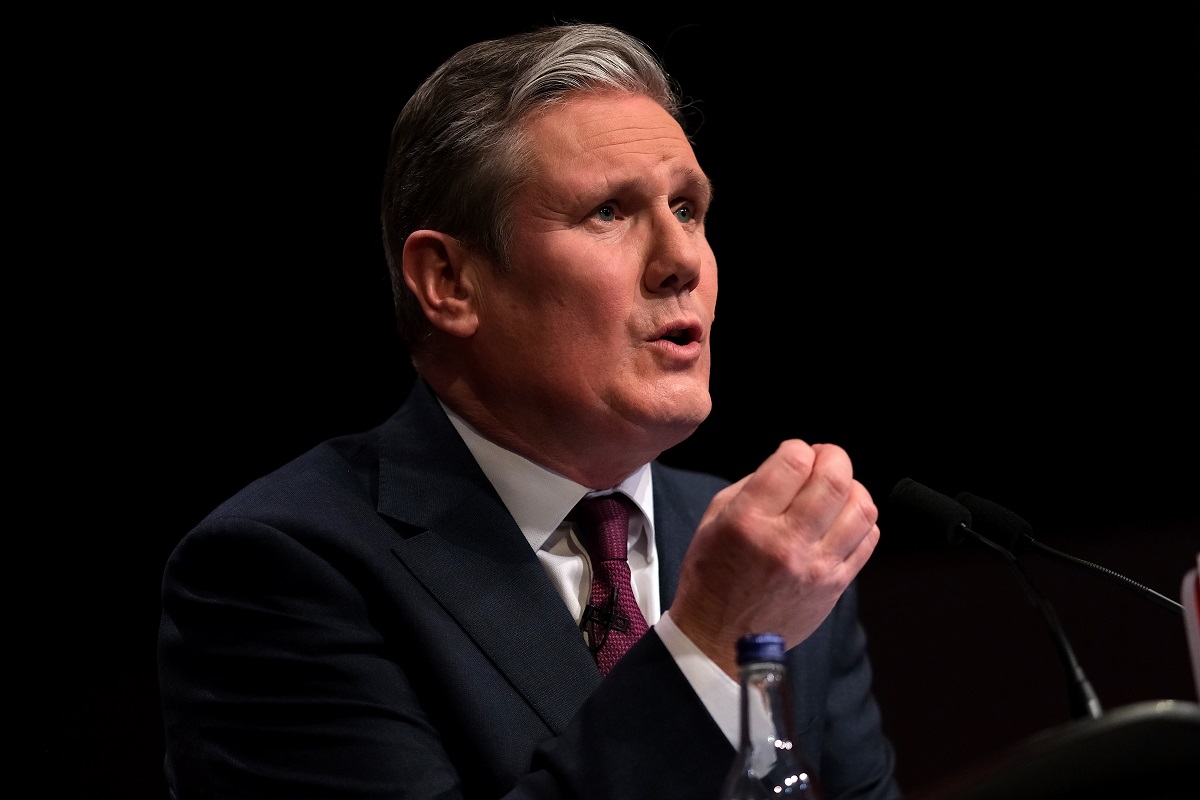Keir Starmer has ruled out breaking fiscal rules to meet the £28 billion green investment target, prompting internal debate on the party’s economic priorities in the lead-up to the upcoming election. Here’s the full story.
Labour’s Shifting Platform
Keir Starmer, the leader of the Labour Party, has made a significant announcement, ruling out breaking fiscal rules to achieve the party’s ambitious £28 billion green investment target. This decision signals a potential shift in Labour’s key policies as they face mounting pressure from Conservative attacks in the lead-up to the upcoming election.
The Labour Party’s £28 billion green investment policy has been a point of contention within the party’s leadership for months. This investment plan, primarily funded through borrowing, has been a central component of Labour’s growth strategy. However, the recent statement from Starmer suggests a willingness to reconsider this cornerstone policy.
Starmer’s Fiscal Priorities
In a speech delivered in Bristol, Starmer clarified that while the green investment mission remains steadfast, adhering to fiscal rules takes precedence. The Labour leader emphasized, “The money that is needed for the investment … will be subject to our fiscal rules. And that means that if the money is for borrowing … but the fiscal rules don’t allow it, then we will borrow less,” indicating a potential shift in the party’s approach to economic management.
As the UK enters an election year, political parties are refining their manifestos. Starmer, in his Bristol speech, pledged to bring optimism to a country he described as “downtrodden.” The Labour leader aims to counter the politics of division and decline with a new initiative dubbed “Project Hope.”
Labour’s Manifesto Under Scrutiny
Labor officials are currently finalizing the party’s manifesto, subjecting previously announced policies to increased scrutiny. The £28 billion green investment proposal, facing internal debate, is under particular scrutiny as Labour seeks to balance its commitment to fiscal responsibility with the need for substantial investment.
The internal debate within Labour revolves around how to achieve green investment goals if fiscal rules restrict borrowing. The party could explore alternative funding sources, such as increased taxes or reallocating funds from other areas. There is also the possibility of adjusting or postponing the £28 billion target.
Criticism and Support
Starmer’s remarks have garnered mixed reactions, with some on the left expressing concern that without the full investment, Labour’s green targets may be unattainable. Sharon Graham, the general secretary of the union Unite, stressed the necessity of serious investment for “project hope” to materialize.
Starmer clarified Labour’s stance on taxes, hinting at a reluctance to promise income tax or national insurance cuts. Additionally, he addressed the party’s approach to processing asylum cases abroad, expressing openness to solutions that prioritize processing before individuals arrive in the UK. Starmer’s three-month nationwide tour, engaging with voters in key towns, is expected to provide further insights into Labour’s strategy for the upcoming election.
More Articles Like This…
Broken Britain: 12 Reasons Behind the UK’s Decline
Say the Unsayable: 10 Occasions When Farage Spoke His Mind About Britain
The post Starmer’s Tough Call: Labour’s Green Dream May Be Dashed by Budget Reality first appeared on Edge Media.
Featured Image Credit: Shutterstock / Altopix.
Grant Gallacher is a seasoned writer with expertise in politics and impactful daily news. His work, deeply rooted in addressing issues that resonate with a wide audience, showcases an unwavering commitment to bringing forth the stories that matter. He is also known for satirical writing and stand up comedy.

